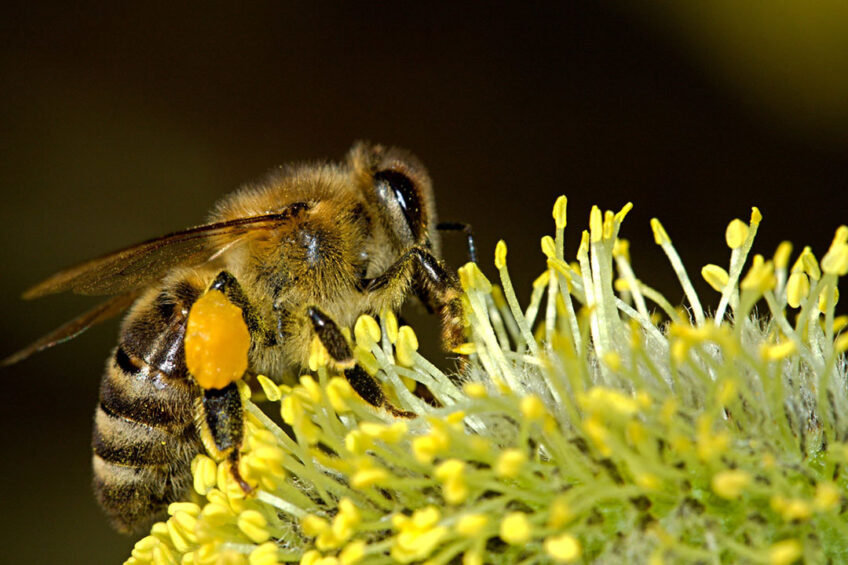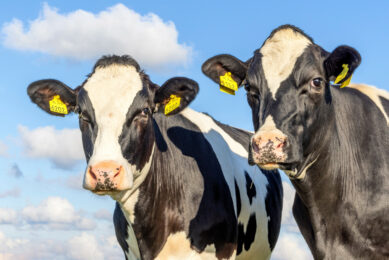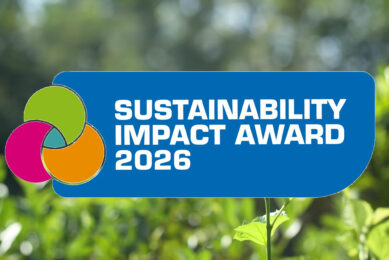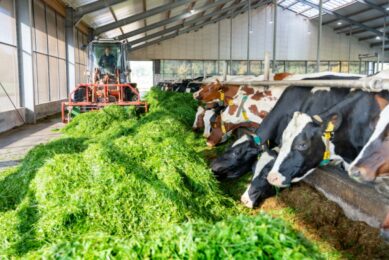UK dairy farmers promoting insects

A group of UK farmers from the Arla Foods dairy cooperative have launched a trial initiative to get British bees buzzing again.
The project is to see whether their efforts for environmentally friendly dairy farming can be broadened to help increase wild bee populations given the crucial role they play in supporting our ecosystems.
Create the best possible habitat insects
Forming part of the dairy cooperative’s farm standards programme Arla UK 360, the research and development module Project Pollinator, will see a trial of 5 farmers across the country set aside areas of land to help vital bee pollinators. Farmers will cultivate, seed and farm the land to create the best possible habitat for a variety of insects, which are crucial in pollinating many of the crops we all rely on. 15% of Arla’s farmer owners already work with independent nature organisations to support bio-diversity and many more have their own on farm biodiversity initiatives. However, the focus of the trial will be to explore whether selecting and cultivating flowers specially for bees and farming the wildlife can help change the declining numbers of bees.
Read also: Arla wants to be more sustainable by 2050
Better manage our balance with wildlife
Marek Nowakowski of the Wildlife Farming Company, who is helping the Arla farmers with the trial, explains, “We look to farmers like those on Arla’s trial to lead the way in showing more of us in the UK how to better manage our balance with wildlife. Habitat quality and variety are the key to increasing biodiversity so this trial, treating wildlife as a crop and farming it so it grows by design, could have significant impact on the efficiency of the land in supporting the types of bees that are our greatest pollinators. I have never seen such passion and enthusiasm from a farming community looking to provide increased opportunities for pollinators. Our growing population requires increasing amounts of land space for housing, infrastructure and food production but this can’t be don’t at the expense of the world around us, we need to give wildlife a helping hand.”
The seed mix has been specially selected to attract and sustain multiple bee species and other wildlife, with two dozen wildflower and grass species sown and cultivated across half a hectare of land on each farm, (equivalent to 184 average UK back gardens).
With over 2,400 UK dairy farmers in the Arla dairy cooperative and 10,300 across Europe, if the trial proves successful, the scope for scale up could prove significant for bees.
Join 13,000+ subscribers
Subscribe to our newsletter to stay updated about all the need-to-know content in the dairy sector, two times a week.










